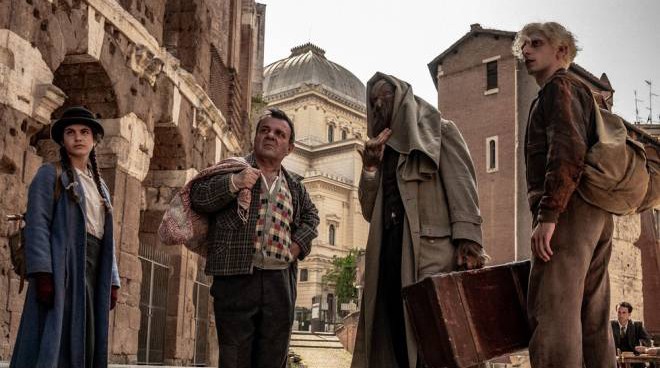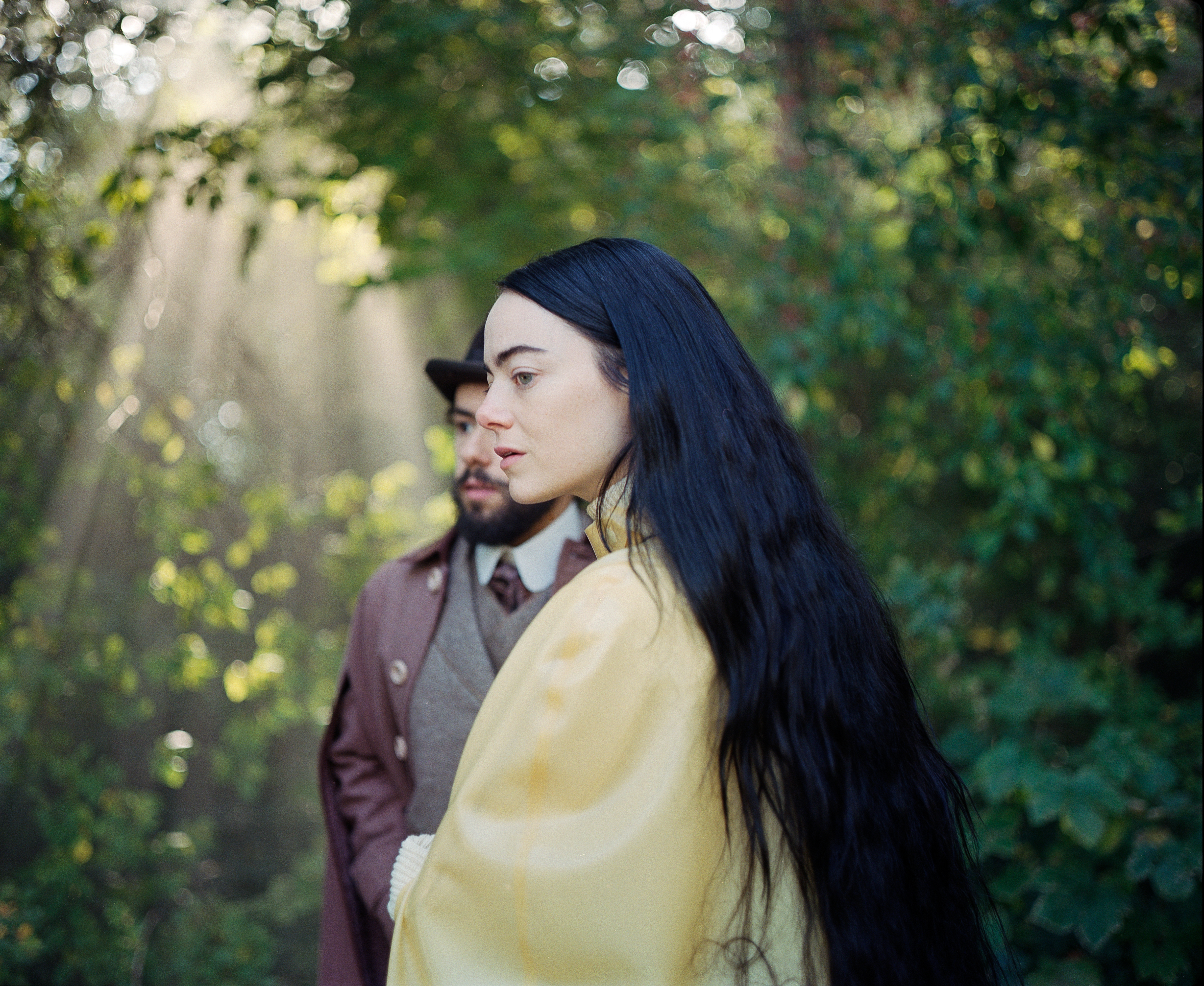The Tragedy of Macbeth
Probably the Bard's work that has had the most success in cinematic adaptations, Macbeth is a tragedy hard to reinvent. There have already been very innovative versions, such as the Kurosawa variant set in the samurai world, Throne of Blood. Polnaksi's extremely gruesome Macbeth is still today a classic, as is the Orson Welles enactment. Kurzel's version, most fateful, also seemed to be a rather definitive reinvention. Yet, Joel Coen still was able to adapt Macbeth to the screen in a manner that feels genuine and fresh.
 |
At around 100 minutes (around 30 minutes shorter than both Kurzel and Polanski's films), Coen omits no scene of the play, even manages to add tiny non-verbal elements that open to new perspectives.
Purposefully very artificial, the production design might remind Laurence Olivier's Hamlet. Bruno Delbonnel's cinematography valorises greatly the vast settings and the estabilishing shots, but when depicting the soliloquies it sometimes lacks in perfection, failing to depict their excitement with matching dedication.
Of course, casting is what makes Coen's Macbeth unique, the choice of Denzel Washington as Macbeth. Washington's performance meets expectations, his Macbeth is filled with his mad rage that has been witnessed for example in Training Day (with obvious retuning to the subject). Frances McDormand's Lady Macbeth is a portrayal that imrpoves throughout the film and truly excels in the second act. It is however the care given for the supporting and minor roles that makes Coen's take worthy of viewing: no other version develops as much the character of Ross (Alex Hassel), who is given further shades of ambiguity and is implied to intervene in several more ways into the storyline than he does in the original play, all of that without ever betraying Shakespeare's text, through additional non-verbal presences or actions.
Worthy of mention is also Ralph Ineson as the wounded soldier from Act I Scene II, whose deep voice timber is most fitting to deliver Shakespeare's prose.
Lastly, a point where Macbeth by Coen works magnificently is the supernatural: Kathryn Hunter provides the witches their unidentified gender as intended by the text; the presence of symbols such as the crows is most coherent with the tragedy.
Coen's version is not a definitive Macbeth (perhaps such a thing cannot exist), and is laudably faithful and inventive at the same time. While underwhelming in few aspects (sometimes the scene is too empty of characters, the epic sense of the final battle is entirely avoided), it is a fine addition to the Pantheon of Macbeth-derived cinema.


Comments
Post a Comment